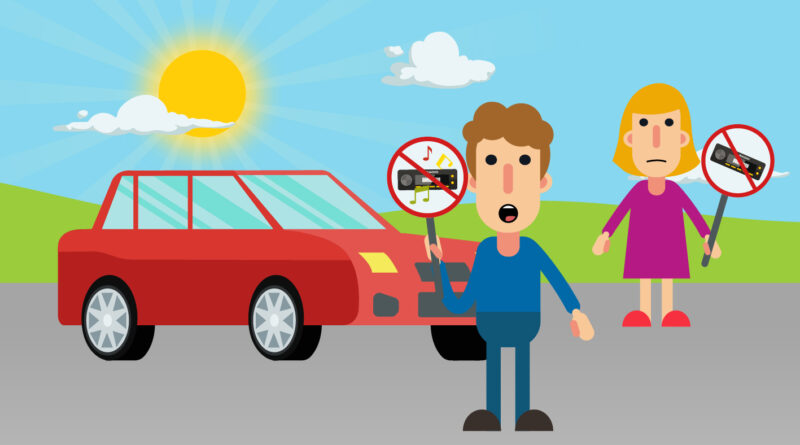The UK’s Petrol and Diesel Car Ban 2035: A U-Turn with Consequences
In recent days, the UK’s automotive industry has been thrust into the spotlight following the government’s decision to extend the petrol and diesel car ban from 2035. The announcement, made by Chancellor Rishi Sunak, has raised eyebrows and sparked discussions about the implications for car manufacturers, the Zero Emission Vehicle mandate, and the upcoming general election. However, a closer look reveals that this policy reversal might not bring the substantial changes it appears to promise.
1. The Prime Minister’s Announcement:
Rishi Sunak’s announcement on the postponement of the ban on new petrol and diesel cars came as a surprise to many. Originally set for 2030 under former Prime Minister Boris Johnson’s plan, the revised deadline is now 2035. The new directive combines all types of internal combustion engine vehicles, including hybrids, and sets a clear path for zero-emission vehicles, primarily battery-powered electric cars, from 2035 onwards.
2. Political Motivations:
Despite attempts to portray the decision as a response to public concerns and the cost-of-living crisis, the u-turn is widely seen as a political move. It aims to secure support from a faction of rebellious Tory backbenchers and exploit uncertainty around electric vehicles (EVs) for electoral gains in the upcoming general election. Public apprehension, fueled by the expansion of the Ultra Low Emission Zone in London, played a role in this strategy.
3. Industry Backlash:
Unsurprisingly, the automotive industry has responded negatively to the announcement. Major players like Ford, BMW (Mini and Rolls-Royce owner), and Tata (Jaguar and Land Rover owner) expressed concerns about the potential impact on their businesses. Such political maneuvers introduce instability into long-term planning, particularly for companies heavily invested in the UK.
4. Effects on Car Manufacturers:
Contrary to public perception, car manufacturers may not change their plans drastically. The lengthy lead times in the automotive industry mean that companies are already working on post-2030 models. The shift to electric vehicles involves significant investments, and many manufacturers have committed to phasing out petrol and diesel models by 2030.
5. The Zero Emission Vehicle Mandate:
An essential component of the government’s original plan was the Zero Emission Vehicle mandate, obliging manufacturers to meet specific targets for electric vehicle sales each year. This mandate, ranging from 22% in 2024 to 80% in 2030, remains in place despite the deadline extension. Failure to meet these targets could result in substantial fines for car manufacturers.
6. Impact on the Car Industry:
The u-turn, intended to allay fears about the transition to EVs, ironically undermines confidence in electric vehicles. By creating uncertainty, Chancellor Sunak makes it harder for car companies to meet their mandate targets and could lead to penalties. This, coupled with the emergence of new EV-only Chinese brands, poses challenges for established car manufacturers.
7. Labour’s Position and General Election:
With a general election on the horizon, Labour has confirmed that it would revert to the 2030 ban if elected. This adds another layer of uncertainty for car manufacturers, discouraging immediate alterations to existing plans.
8. Media Influence and Public Perception:
Media campaigns against electric vehicles, fueled by right-wing-leaning outlets, have contributed to public skepticism. While valid concerns exist regarding EV costs, charging infrastructure, and battery-related issues, ongoing developments aim to address these challenges and push the automotive industry forward.
9. Used Car Market:
For the majority of households purchasing used cars, the 2030/2035 deadline has minimal relevance. Approximately 90% of UK car sales involve used cars, and the ban primarily affects new car buyers. The used car market will continue to offer a variety of options beyond the deadline.
10. The Future of Fossil Fuel Cars:
As for when existing petrol and diesel cars will be phased out, no specific date has been set. Speculation centers around 2050, aligning with the Net Zero emissions target. Consumers can continue driving fossil fuel or hybrid cars until they decide to switch, likely benefiting from improved EV technology and infrastructure.
Conclusion:
The government’s decision to extend the ban on new petrol and diesel cars has stirred controversy and raised questions about its true motivations. While presenting a facade of flexibility, the move introduces uncertainty into the automotive industry, potentially affecting investment and consumer confidence. The focus now shifts to how car manufacturers navigate the evolving landscape, adhere to the Zero Emission Vehicle mandate, and respond to changing political tides in the run-up to the general election. Should you sell your diesel car?
Buying a used VW. Buying used vauxhall, BMW, Jaguar, Ford, Volvo, Range rover, Bentley, Aston Martin, Porsche, Ferrari, Lamborghini, Maserati, Hyundai, Tesla, Honda, Pagani

